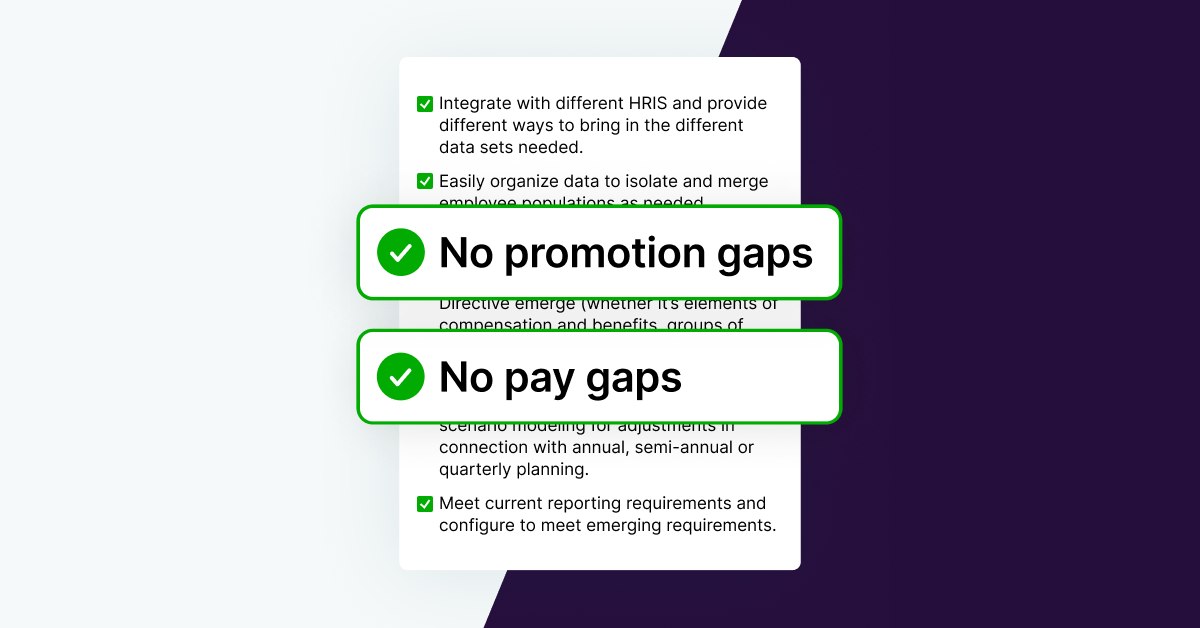Concerns about a recession remain high, even as the economic forecast continues to be uncertain. A scan of recent headlines show no clear consensus on whether a recession is unavoidable next year or if a “soft landing” is a possibility, whether a coming recession would be modest or severe, and whether it would be global or regional: “Economy still expected to enter (and exit) modest recession”; “U.S. may skirt recession in 2023, Europe not so lucky”; “Why a global recession is inevitable in 2023”.
Complicating the recession equation is the fact that the labor market and consumer spending have stayed relatively strong, and inflation in the U.S. shows signs of easing (although it still remains high).
One thing is clear, everyone is worried about the potential for a recession — and they’re starting to plan for one. Almost every CEO is bracing for an economic downturn in the next 12 to 18 months, with 98% of chief executives prepping for a recession in the U.S. and 99% in Europe. As organizations prepare to weather the next downturn, HR teams are shifting their focus to retention over hiring. A recent survey by PwC showed that half of respondents said they’re reducing headcount or plan to, and 52% have implemented hiring freezes.
Any changes to hiring plans and compensation will impact pay gaps in many companies, which raises the question: what’s the importance of equity in the workplace during a time of economic uncertainty? And should organizations prioritize their workplace equity programs?
How economic uncertainty affects workplace equity
During the last “Great Recession,” as in previous recessions, men bore the brunt of unemployment compared to women overall, with men of color hit the hardest. In May 2009, white men’s unemployment rate was 9.7%, while Black men’s was 18%. For white women it was 7.3%, and for Black women, 12.2%, according to the U.S. Labor Department’s Bureau of Labor Statistics. The increase in the unemployment rate gap between white and Black employees for both men and women was “consistent with previous recessions and periods of high unemployment,” according to Ron Laschever, Assistant Professor of Economics at the University of Illinois at Urbana-Champaign.
But while normal recessions close the gender wage gap by 2 percentage points, the pandemic recession widened the gap by 5 percentage points. Women lost more than 1.4 million net jobs between February 2020 and March 2022, and made up nearly 70% of workers who lost jobs since the start of the crisis.
This resulted in women overall making 73 cents to the dollar that a white, non-Hispanic man made. The gap was even worse for Black, Native American and Latina women, who earned 58 cents, 50 cents and 49 cents for every dollar a white, non-Hispanic man earned, respectively.
The next recession may be different
Despite recent high-profile layoffs in the tech industry, the overall job market remains tight due factors such as an aging workforce and persistently low labor force participation rates. The Conference Board reported that, in a May 2022 survey, a majority of company executives were predicting a recession by the end of 2023 and said that attracting and retaining talent is part of their top long-term growth strategies. Although many HR teams seem to be moving away from a focus on hiring, retention is indeed shaping up to be a crucial strategy for companies in the face of a turbulent economy.
A Yahoo!Finance article that discusses the “job market riddle at the heart of the coming recession” points out that many companies are expected to “hoard labor” in the face of an economic downturn. Cleveland Federal Reserve Bank President Loretta Mester shares in the article that “Business contacts are telling us that they plan to keep workers even as the economy slows because it was just so difficult to attract them and retain them over the last few years.”
What does this mean for your workplace equity plans?
In uncertain economic conditions, it would be tempting for many organizations to deprioritize the importance of equity in the workplace while dealing with other issues that seem more urgent, such as conserving cash and diversifying their customer base. But a diverse workforce is more resilient in times of trouble, including economic downturns, and your workforce will not become or remain diverse without a dedicated effort.
There are multiple other reasons for continuing to invest in workplace equity. Without demonstrating to stakeholders that you’re striving to achieve an equitable workplace:
You won’t be able to attract and retain top talent who are demanding real change.
A recent Glassdoor survey reported that two out of three job candidates seek companies that have diverse workforces. A Deloitte survey found that 74% of millennial employees believe their organization is more innovative when it has a culture of inclusion, and 47% actively look for diversity and inclusion when sizing up potential employers.
In addition, organizations with inclusive policies that result in a greater sense of belongingness see a 50% reduction in employee turnover and a 56% increase in job performance.
You’ll limit your access to capital as ESG comes to the forefront.
Investors’ interest in companies that are actively pursuing ESG goals continues to grow. 85% of investment professionals included ESG in investing decisions in 2020, and investors poured $649 billion into ESG-focused funds during the first 11 months of 2021.
In their report ESG Outlook 2022: The Future of ESG Investing, J.P. Morgan Asset Management observed, “We expect growth in ESG investing to continue through 2022, and well beyond. The shift to sustainable investing is so powerful because it’s being driven by demand from the bottom up. Quite simply, investors — from individual savers through to large institutions — are directing an ever-increasing proportion of their portfolios towards sustainable strategies as they look to use their capital to help create a more sustainable world.”
You’ll miss out on greater long-term business success.
The business case for workplace equity has been established in multiple studies. McKinsey noted that corporations identified as more diverse and inclusive are 35% more likely to outperform their competitors. Diverse companies are 70% more likely to capture new markets, and diverse management teams lead to 19% higher revenue. In addition, a study by Josh Bersin revealed that inclusive companies are 1.7 times more likely to be innovative and get 2.3 times more cash flow per employee.
You’ll face litigation and compliance risks due to rapidly increasing legislation.
In the U.S., we’re seeing a wave of shareholder initiatives around pay transparency. Legislation is also increasing in states across the nation, with 13 jurisdictions currently implementing some form of pay transparency law, and more expected. You can get the latest update in our U.S. Pay Scale Transparency Legislation Cheat Sheet.
We are also seeing a global cross-pollination of workplace equity laws, noted Ritu Mohanka-Vedhara, Syndio Managing Director and Head of EMEA, in a recent webinar. “The new EU directive is aimed at ensuring that the right to equal pay is upheld across all member States. It’s only just the beginning, but it’s a tipping point, and every single EU member state will need to start thinking about it. And within two years, all member states will have to implement the legislation in national law. The EU directive will require that companies put the pay scale on their jobs, which is similar to what is happening in the U.S., too.”
You can read about global pay reporting requirements in Syndio’s Global Pay Reporting Cheat Sheet.
You’ll face reputational risks that could impact profits.
Companies have realized that not supporting ESG is a risk to their success. In a survey conducted by OCEG, a global think tank empowering businesses to act with integrity, 78% of responding companies named brand reputation as the top reason for their ESG efforts. A study by PR firm FleishmanHillard found that:
- Nearly 65% of consumers say brands must commit to advancing DE&I in the workplace to be more credible than their peers
- 76% of consumers say companies must provide a work environment that is more diverse, inclusive and equal
- and 72% say CEOs must demonstrate their commitment to DE&I both internally and externally
“Organizations face risks to reputation if practices are spotlighted that do not support or align to DEI values,” Deloitte stated in their report Diversity, Equity, and Inclusion (DEI) Across the Consumer Value Chain. “A negative reputation can limit the attractiveness of the organization for potential employees who desire to work for organizations that align with their social priorities. It can also negatively influence consumer spending as consumers increasingly choose to support organizations that demonstrate diverse, equitable and inclusive values and social responsibility.”
Clearly, economic uncertainty isn’t a reason to drop workplace equity efforts — it’s a reason to stay the course in order to not only weather the bumps, but improve your company prospects. Great Places to Work studied companies during the Great Recession and found that while the S&P 500 suffered a 35.5% decline in stock performance from 2007-2009, companies didn’t all share evenly in the pain — those whose key employee groups had very positive experiences posted a remarkable 14.4% gain. During a recession, these companies grew.
How can you prioritize the importance of equity in the workplace during economic uncertainty?
Among the challenges posed by tough economic times is the fact that companies can’t make up for past workplace equity mistakes by hiring. Open opportunities will need to be filled internally, and all identity groups in your organization deserve equal access to those opportunities. You will need to analyze whether promotions and other opportunities are being offered equitably, and if your leadership is moving toward appropriate representation.
Current approaches to workplace equity won’t help you achieve this, but new methods can. See how you can work toward equity in the workplace — even during an economic downturn — with the right workplace equity solution and expert consulting.


